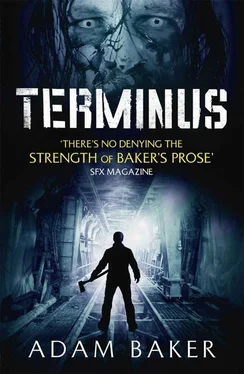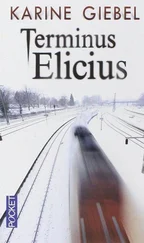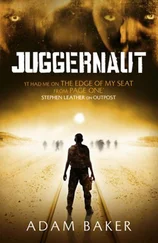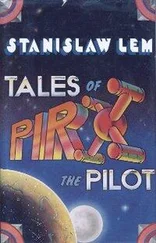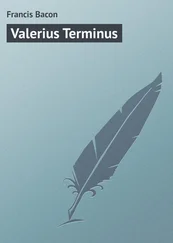Lupe sat with her back to the wall. She closed her eyes and leaned her head against the brickwork. Faint snore.
Cloke watched her sleep. A subtle transformation. Her jaw-jutting aggression slowly softened. Hard years melted away and she was a girl once more.
He tore tape and flapped open the plastic bag. Jumbled documents. Photographs, data, suicide notes blotted with tears.
He pulled out a handwritten sheet of paper and started to read.
Harold Donner
Bellevue Dept of Neurosurgery
I killed a man. I, along with my colleagues, participated in murder. We took a healthy person. We infected him, watched him suffer and succumb, then dissected his body. It was an extrajudicial killing. Those of us involved took refuge in circumlocutory language. We called it ‘extreme therapeutic measures’. We discussed ‘the procedure’. But it was murder, plain and simple. I’m not proud of what I did. I have no doubt it was an absolute betrayal of the Hippocratic Oath.
It had to be done.
We were desperate to find an antidote to this terrible disease. But to fully understand the pathology of the virus, we would need to study its progress from the moment of infection, examine samples of bone marrow and cerebrospinal fluid, watch replicating cells populate a bloodstream and fuse with a central nervous system.
It would cost a life.
A terrible choice. Ekks was adamant each member of our team should play a role. Three doctors, three nurses. We would share responsibility. None of us would shoulder the burden alone.
We could have refused, kept our integrity, gone to our graves morally intact. But that would have been an indulgence.
It was my job to select the test subject.
The day we fled Bellevue hospital, we were accompanied by four prisoners from the Special Management Control Unit. I suspect the orderlies charged with keeping them secure would have happily left them to starve in their cells or get ripped apart by prowlers. But Ekks insisted they travel with us.
Looking back, he already had a plan.
We ran to the 23rd Street Station. We seized a train and rode south to Fenwick Street. We pitched camp.
Ekks outlined his proposal. He wanted to observe the moment of infection, second by second.
Weeks earlier, the Centre for Disease Control had supplied our team with a sample of the virus in its purest form. It arrived under military escort. A white biocontainment box with a strange half-skull symbol on the lid, as if someone hurriedly tried to scribble a warning glyph:
Inside the box was a gloved hand. The glove looked like it had been cut from a cosmonaut pressure suit. White canvas, cooling capillaries, dimpled rubber palm-grip. Splintered bone and dried flesh protruded from the gauntlet. There was a blue anodised lock-ring at the wrist. Cyrillic lettering and part numbers etched into the titanium.
Each outbreak of this disease had been associated with Russian space debris. Months ago, a fuel tank re-entered the atmosphere and crashed to earth in forest north of Spokane. The following weeks saw further starfalls over northern Europe and the Arctic Circle. Each impact was followed by the outbreak of a lethal haemorrhagic pathogen designated Mystery Pathogen 01, aka EmPath.
I asked Ekks about the glove. Was it part of some secret military space programme? Had a Soyuz capsule fallen to earth?
He smiled. He said the gloved hand represented the original, most lethal strain of the virus.
He wanted to observe the virus colonise a human body. He wanted to see it pervade the blood stream, infiltrate tissue, bore into the spinal column and brain stem. Could the initial colonisation be blocked by antineoplastic agents? If it were treated like any other malignancy, attacked in the early stages using anti-cancer drugs such as Thioguanine or Methotrexate, could it be stopped?
It was a problem that dogged us during our time sequestered in Bellevue. We had unlimited access to infected subjects snatched off the street. But they were too far gone. Advanced cases. The process of infection, the manner in which the virus first fused with its host, remained a mystery.
Ekks put it to a vote. He wouldn’t undertake the procedure unless we gave unanimous consent.
We talked it over. I trusted Ekks. I trusted his judgement. His expertise far exceeded my own. In all the years I have know him, followed his work at Bellevue, he has always acted with the highest integrity. He had been a second father, a guiding hand. So when he sequestered the medical team in one of the subway carriages and laid out his plan, I had no choice but to raise my hand in assent.
It seems ridiculous to spend my last minutes on earth writing this account of our time below ground. We are sealed in a tunnel. Our bodies will never be found. We will lie here for ever, entombed like the pharaohs.
Why should a single death matter? The execution of a recidivist piece of garbage, a valueless fleck of human junk. A man who wasted his entire life, spread misery, achieved nothing. Why care? Every survivor on this continent has witnessed unimaginable slaughter, experienced terrible grief. The world has become an abattoir. New York itself is burning above our heads. The entire city levelled by a nuclear firestorm. Thousands killed. Our team, down here in these tunnels, conspired to take a single life. A trivial deed, by comparison. An insignificant man, a vicious criminal. Is it absurd that this act torments me? That I can’t scrub away the disgusting taint of my own complicity?
‘Choose,’ Ekks told me. ‘We will all carry the burden. Like pallbearers, we will each shoulder a fraction of the load. Your duty is to choose. We have four prisoners, four worthless criminals. Decide. Who will be the sacrifice? Who must give his life?’
It haunts me. The moment I stood in front of the captives, pointed a finger and said ‘Him’.
Ekks stirred. He shifted his head.
Cloke checked the man’s pulse, his breathing.
He leaned close and whispered in his ear.
‘Can you hear me? Doctor Ekks? Can you hear me?’
No response.
Cloke poured a capful of water into the man’s mouth. Reflex swallow.
‘Give me a sign. Blink, or move your fingers, if you can hear my voice.’
No reaction.
Cloke watched him awhile, then resumed reading the sheaf of notes.
The presidential order arrived nine days before the bomb dropped. Our last direct contact with the outside world.
We pleaded for rescue time and again, but help never came. One by one, all radio contacts fell silent. Every army unit that might have conceivably come to our aid had been surrounded, overrun, torn apart.
It added new urgency to our work. The realisation our lives had no value unless we made significant progress in our research.
We were marooned with no hope of fighting our way to safety. Then we received a terse radio message. A chopper would land that afternoon. It had been dispatched from an airfield upstate. It would carry fresh orders.
A brief and perilous touchdown at the junction of Lafayette and Canal. Chief Jefferson and a couple of NYPD SWAT. It must have been a nightmare journey. A quarter-mile dash down the street, ducking between wrecked cars, advancing cover/fire as infected creatures stumbled out of doorways to meet them.
The Fenwick entrance gate was so rusted it took us ten minutes to hammer the padlock loose. Jefferson and his men took position at the mouth of the alley while we worked. They slapped a fresh mag into his rifle and methodically took down a shambling mob of infected headed their way.
Читать дальше
